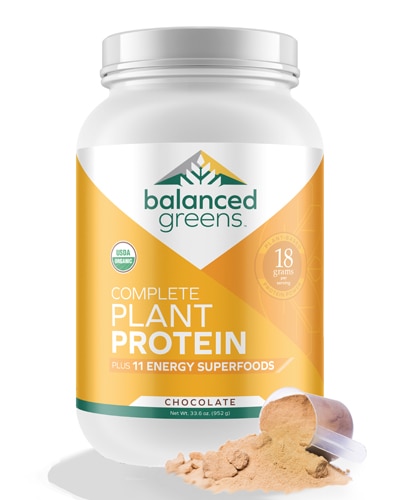[vc_row][vc_column][vc_column_text]The U.S. spends hundreds of billions of dollars each year to manage diabetes. In fact, it’s estimated that $1 of every $4 earmarked for health care goes toward diabetes treatment.
There’s some good news, though, in the prevention realm: A new study suggests that a non-medical approach — reducing the consumption of red meat or processed meat — might help curb the risk of type 2 diabetes. This form of diabetes affects roughly 9 in 10 Americans who have diabetes.
This study adds to a growing body of evidence that cutting back on red meat or processed meat in your diet might lower the risk of type 2 diabetes. Consumption of red and processed meats has been associated with a greater risk for type 2 diabetes.
A study in Finland found that slicing the amount of red meat by 100 grams per week or processed meat by 50 grams per week and substituting a similar amount of fruit led to a slight decrease (1% to 2%) in the risk of type 2 diabetes among men. Furthermore, substituting red or processed meats with cereals caused a drop in risk of up to 3% in men.
The news isn’t so promising for women, however.
“Findings were similar in women,” the study says, “but after adjusting for BMI and other relevant socio-economic and lifestyle factors, these associations no longer reached statistical significance.”
It’s worth noting that men made up nearly 80% of the participants in the study, which was published in April 2023 by the journal Scientific Reports.
Meat and diabetes: What does other research reveal?
The Finnish study supports previous research regarding the connection between red and processed meats and type 2 diabetes:
- A U.S. study found that swapping red meat (100 grams per day) or processed meat (50 grams per day) for whole grains (32 grams per day of bread or 200 grams per day of cooked brown rice or cereals) slashed the risk of type 2 diabetes. The risk fell 24% for those in the red meat category and 35% in the processed meat category.
- A European study determined that replacing red and processed meats (50 grams per day) with cereals (refined and whole grain, 30 grams per day) resulted in an 8% lower risk for type 2 diabetes.
However, a Danish study showed no decline in the risk of type 2 diabetes for people who substituted red and processed meats (100 grams per day) with whole grains or refined grains (30 grams per day).
Should you cut back on red or processed meat to fight diabetes?
So, should you ease up on consumption of red and processed meats to give yourself a better shot at combating type 2 diabetes? Experts lean toward “yes.”
A study published in 2014 in the journal Nutrients concluded that the prevalence of type 2 diabetes goes up in tandem the frequency of meat consumption. Therefore, trimming the amount of meat you consume might put you in a better position to keep type 2 diabetes at bay.
The Mayo Clinic lends credence to the findings of the 2014 study. A vegetarian diet might promote weight control, reduce the risk of some complications linked to diabetes and make your body more responsive to insulin, the clinic says.
“A vegetarian diet probably won’t cure your diabetes. But it may offer some benefits over a nonvegetarian diet,” says the Mayo Clinic.
The role of meat in a diabetes-friendly diet
Overall, the American Diabetes Association and other organizations recommend that in order to prevent or manage diabetes, people should emphasize eating minimally processed fruits, vegetables, whole grains and legumes, and de-emphasize consuming red and processed meats, refined carbs, saturated fats and sugar-sweetened beverages.
The diabetes association suggests that if you’d like to keep red or processed meats in your diet, you should pick the leanest options:
- Beef — Select or choice cuts that are trimmed of fat, including chuck, rib, rump roast, round, sirloin, cubed, flank, porterhouse, T-bone steak and tenderloin.
- Lamb — Chops, lamb legs and lamb roast.
- Veal — Loin chop and roast.
- Ham — Canadian bacon, center loin chop, ham and tenderloin.
New recommendations released earlier this year by the Diabetes and Nutrition Study Group (DNSG) of the European Association for the Study of Diabetes align with the American Diabetes Association’s guidelines. The European recommendations call for restricting the consumption of red and processed meats to prevent and manage diabetes. Instead, people should focus more on eating minimally processed plant-based foods.
“The recommendation to consume a more plant-based diet is direly needed to avert the expected 200 million new cases of diabetes worldwide in the next 20 years,” Dr. Hana Kahleova, co-author of the recommendations and director of clinical research at the Physicians Committee for Responsible Medicine, says in a news release. “The clinical research I conduct consistently shows the benefits of a plant-based diet for preventing and improving diabetes.”[/vc_column_text][/vc_column][/vc_row][vc_row][vc_column][vc_text_separator title="Featured Products" border_width="2"][vc_row_inner equal_height="yes" content_placement="middle" gap="35"][vc_column_inner width="1/3"][vc_single_image image="168065" img_size="full" alignment="center" onclick="custom_link" img_link_target="_blank" css=".vc_custom_1690834710189{padding-right: 7% !important;padding-left: 7% !important;}" link="https://www.vitacost.com/bare-bones-plant-based-soup"][/vc_column_inner][vc_column_inner width="1/3"][vc_single_image image="168064" img_size="full" alignment="center" onclick="custom_link" img_link_target="_blank" css=".vc_custom_1690834733797{padding-right: 7% !important;padding-left: 7% !important;}" link="https://www.vitacost.com/unisoy-vegan-jerky-carne-asada"][/vc_column_inner][vc_column_inner width="1/3"][vc_single_image image="168063" img_size="full" alignment="center" onclick="custom_link" img_link_target="_blank" css=".vc_custom_1690834757777{padding-right: 7% !important;padding-left: 7% !important;}" link="https://www.vitacost.com/nature-made-diabetes-support-pack-30-days"][/vc_column_inner][/vc_row_inner][/vc_column][/vc_row]




